Art and Culture
Liberalism Can Succeed
The first concerns the relationship of theory to practice; the second, the relationship of liberalism to its preliberal inheritance.
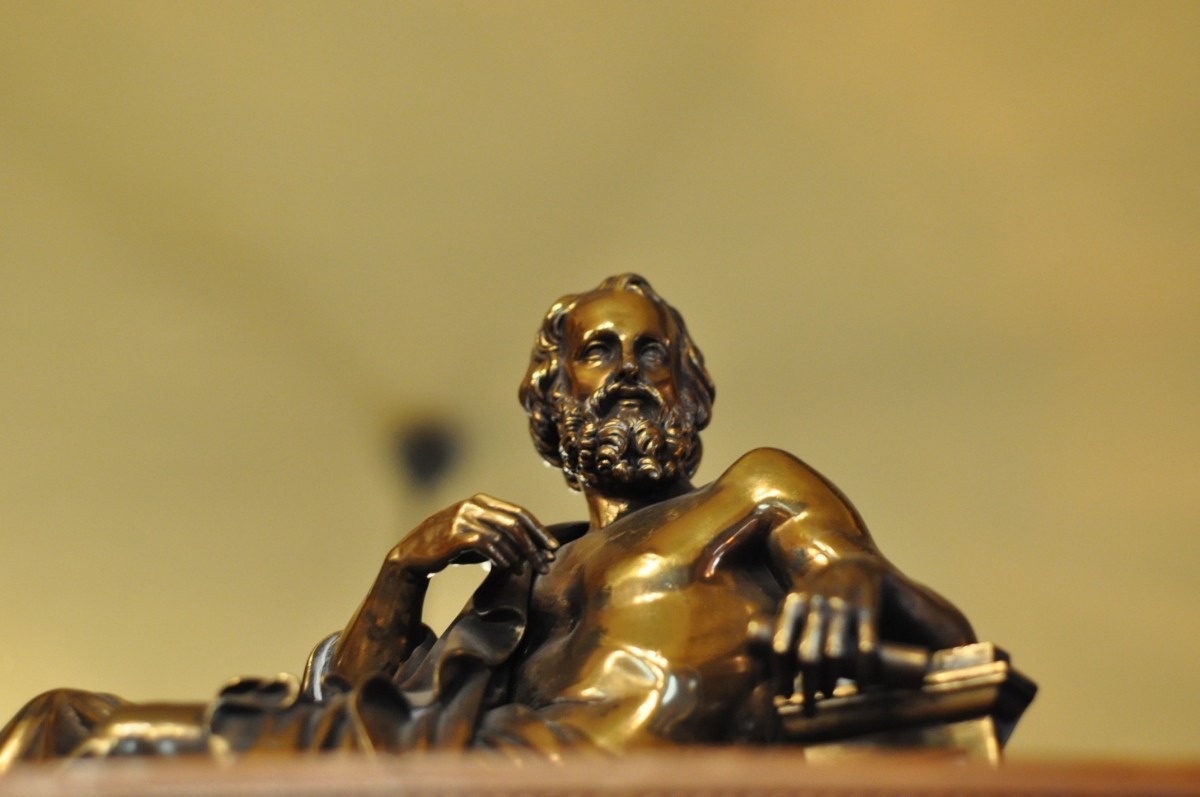
[This is Part II of a two-part review of Patrick Deneen’s Why Liberalism Failed. You can read Part I here]
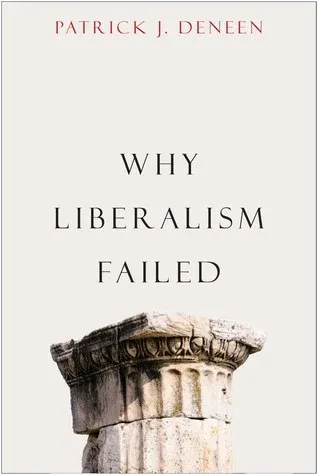
If we’re already at the point where liberal citizens cannot remember what our regime is supposed to protect — the individual and her natural rights to self-determination — what do we do? Answer: remind them what it is to be one, and why the individual is the pearl of greatest price. If we want to stand athwart the march toward illiberalism, moreover, and are so bold as to try to reverse its course, restoring confidence in the justice and wisdom of liberal practices and philosophy, what do we do? Answer: respond to liberalism’s critics, whether Deneen, the postmodernists, or the illiberal regimes abroad. After all, our preference for Western liberalism over these rivals is not enough to exonerate it from their critiques. We must respond to them, urgently, so that thoughtful Westerners who have lost confidence in the project, or at least its coherence, may find it once again.
In a pair of essays on this site at the end of last year I tried to do just that. I began by presenting the best postmodern critiques of modern philosophy. While I argued in the first essay that some of these critiques were sound, in the second essay I defended the best features of modernism —liberal values and empirical science — against them. I did this, in short, by replacing the basic approach typical of modern philosophies (that the world is of indifferent value, and that our character is not relevant to our understanding it) with the premodern approach of Plato and Aristotle (that the world is suffused with value, and that we must undergo character training in order to understand it). My aim then was to give liberalism and science the philosophical support they need to remain cogent and compelling to rational people in the wake of serious objections. My aim is similar in this review.
Having acknowledged the power of Deneen’s best arguments against liberalism, I here wish to defend it by showing how it can be refined in order to avoid these arguments. For he does not criticize liberal values — such as freedom of speech or religion, constitutional government, and the rule of law — but instead criticizes a particular, albeit very influential, version of liberalism. This version, characteristic of the modernism I rejected in my essay last year, is epitomized by the social contract theories of Hobbes and Locke. Consequently, if those same values can be supported by philosophies that do not commit their theoretical errors, these alternate philosophies and their new version of liberalism could avoid Deneen’s critique altogether. My goal in articulating this new version of liberalism is less to refute Deneen than to answer his own invitation (in a concluding section of his book, entitled “After Liberalism”) to develop “a better theory of politics and society.” In my view, this better theory still deserves to be called liberalism.
Whatever we call it, though, Deneen insists that it meet two conditions. The first concerns the relationship of theory to practice; the second, the relationship of liberalism to its preliberal inheritance. After a century of ideological wars, in which the victory of liberalism appears to have been pyrrhic, this better theory should not be, Deneen warns, “a replacement ideology.” The ideologies of Communism and (to a lesser extent) fascism were sprung from philosophers’ heads. Tyrants then took complex societies and made their practices conform to the dictates of simplistic theory. Stalin and Mao, for example, killed millions by famine when they insisted against all practical wisdom that their economies should conform to central planning. To avoid this error, as we develop the better theory of politics, Deneen believes “we should focus on developing practices that foster new forms of culture, household economics, and polis life.” Practice first, theory later.
Now, the development of practices will surely enhance this better theory of politics, whatever it turns out to be, but we don’t have the luxury of time to wait for it to emerge from “the cauldron of such experience.” While liberalism is starting to fail at home and around the world, rivals are filling the vacuum with competing visions. Xi Jinping and other autocrats have some, while the populist Western demagogues have others. Often they are difficult to distinguish. In any case, none of them is going to wait for the people who order farm boxes and darn their own socks to get their theoretical house in order before attempting to bang down the door. They have been on the portico since at least the financial crisis of 2008. Their attempts have become more explicit, and more successful, since Trump’s election — which, it must be said, happened after Deneen had finished the first draft of his manuscript.
So, the theoretical work to bolster liberalism must be done now. What warrants our liberal values? How can they be made coherent and compelling when they are being challenged from every quarter? Fortunately, the answers to these questions don’t need to be invented; they can be found. “The outlines of such a theory are already discernible,” writes Deneen, “guided by liberalism’s own retention of essential concepts from a preliberal age.” That preliberal age, with its emphasis on character-development rather than desire-maximization, on self-mastery rather than self-expression, is the premodern world of Plato and Aristotle invoked by the second of my essays last year: “Premodernism of the Future.” It should come as no surprise, therefore, that on this point Deneen and I agree.
I. Premodern Liberalism
The better theory of politics and society, Deneen specifies, “must eschew liberalism’s ideological dimensions yet be cognizant of its achievements and the rightful demands it makes — particularly for justice and dignity.” The rightful demands it makes are juridical and political. The individual citizen — not the group or the state — is the primary concern of politics. Her basic rights must be respected, whatever concerns the collective may bring to bear against her. She must be permitted to speak, for instance, even if a group finds her speech offensive. She must be allowed to worship, even if the majority despises her god. She must be afforded due process, even if the state and its leaders are sure of her guilt. These leaders must be constrained by laws, and both laws and leaders must be answerable, however indirectly, to the individuals they rule.
Deneen endorses these juridical and political aspects of liberalism, even if all of them require philosophical justification. What he rejects are those justifications that involve “liberalism’s ideological dimensions.” What, then, are these? Although he often speaks of them collectively as “individualism,” his approval of the juridical and political individual makes this name too general to pinpoint his specific complaint. At his most precise, however, he distinguishes two dimensions of this baleful ideology: (i) voluntarism and (ii) alienation from nature. Deneen sees both coming to prominence in the thought of the early-modern philosophers who are the consistent villains of his story: Machiavelli, Descartes, Francis Bacon, Hobbes, and Locke. (As his argument develops, he adds to the wanted list: The Federalists, Rousseau, Marx, J. S. Mill, Dewey, and Rorty.) Let us consider what these ideological dimensions mean before examining (a) the problems with them, and (b) whether the juridical and political accomplishments of liberalism can be preserved without them.
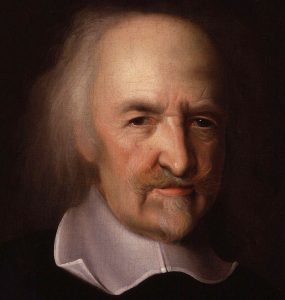
First, voluntarism. In Hobbes, for example, the human individual exercises his will in order to accomplish his desires, but this will is not inherently ordered toward anything, except perhaps survival and the gratification of bodily appetites and base passions. “Whatsoever is the object of any man’s appetite or desire,” he writes in Leviathan, “that is it which he for his part calleth good; and the object of his hate and aversion, evil.” In other words, good and evil are not inherent features of the world, which is of indifferent value. Instead, “good” and “evil” are names we give to whatever we happen to like or dislike. Desire is primary, value secondary. Our will is directed towards the objects of our desire, not toward some independent good. There is no such good, and so our desires cannot be evaluated against it. Education will focus not on them, then, but on the means to acquire their objects.
Hobbes’s voluntarism contrasts with the views of Plato and Aristotle (or Aquinas, for that matter), who believe there is real value in the world, independent of our desires. For Plato, this is the Good; for Aristotle and Aquinas, it is God. For all three, an important part of living a good life is reforming your desires, or re-orienting your will, so that you seek what is truly good. One guarantee of an impoverished life is pretending to be content with what merely seemed good according to your untutored appetites and passions. This pretense is like living in the bottom of a cave, believing that the images projected by firelight onto a wall are real things. To avoid such a fate, education is necessary. But unlike education in the voluntarist mode, which aims outward, to acquire the objects of desire, education in this classical and Christian mode aims inward, to reform desire itself. Reformation of desire and re-orientation of the will — in a word, character-training — are the route to self-mastery.
Second, alienation from nature. Bacon articulated more clearly than any other early-modern figure the opposition between needy humans and stingy nature. As we seek to satisfy our appetites and desires, we meet natural obstacles, but whereas ancient philosophies and religions taught us to accept our limits and tame our cravings, the new science he championed would give us the power to master nature instead. According to Bacon, in fact, nature is “a prisoner, who, under torture, might be compelled to reveal her long-withheld secrets.” Rather than reforming and re-orienting our desires, in the classical and Christian mode, we can now force nature to yield our satisfactions and leave our untutored desires intact.

In this quest for mastery over nature, Bacon and his 17th century contemporaries did not envision controlling human nature itself. When Hobbes designed his social order, for instance, he assumed that humans would always remain greedy, so that the best society would be one that channeled this individual vice toward the common good. In the 19th century, however, the Baconian project of control over nature rejected that assumption and extended its ambition to human nature too. Whereas Hobbes tried to contain human greed, Marx dreamed of a utopia that would eliminate it. The most extreme case of this approach — not mentioned by Deneen, but chillingly described in Masha Gessen’s The Future is History — is the Homo Sovieticus conceived by the Russian revolutionaries. This “new man” would be constructed by the socialist society, his desires aligning perfectly with its needs. Here is the antecedent of the “social constructionist” view of human nature.
Both the Marxist and the Hobbesian approach depart from that of Aristotle. According to him, each natural thing, whether a plant or a human being, has a natural purpose. A good human life is not one that violates those natural purposes in order to satisfy desires, but instead one that respects them in order to bring them to their fullest actualization. The good farmer, then, knows and respects the natural purposes of each species he cultivates. Recognizing their inherent weaknesses, he seeks to master them through planning, rather than eliminate them by tampering with their genetic codes, say, in order to maximize calories produced or minimize infectious threats. The good human, whatever his craft, knows and respects the inherent purposes of his own body and nature. Recognizing his inherent weaknesses, he seeks to master them through character-training, rather than eliminate them through scientific or social interventions. This would be living in harmony with nature, not at war with it. This would be living virtuously, where the virtuous life is understood to be the fulfillment of natural purpose.

These comparisons with Aristotle throw into sharp relief the two anthropological views criticized by Deneen: (i) voluntarism, and (ii) alienation from nature. They were indeed ideological dimensions of the early-modern philosophies that served as the foundation of liberalism. But is he right that they were baleful? And if so, were they necessary premises of the liberal revolution? Or might they be abandoned in favor of a better anthropology? Let’s take them in order, starting with voluntarism.
The dangers of this view to political life are obvious. If citizens come to believe that there is no good or bad, aside from whatever they happen to desire, calling “good” what they like and “bad” what they hate, it will become impossible to resolve public disputes according to any commonly accepted moral vocabulary. Human desires are infinite and variable — between individuals, and even within any given individual — so that political life, which requires some regimentation of behavior, if not also desire, will become impossible once the rationale for that regimentation (living a good life, one that is really good, not simply one that seems desirable to some people some of the time) has been undermined. Every social order requires a shared philosophy, if only as a set of knee-jerk responses that most citizens give to certain fundamental questions. A durable social order, moreover, requires a philosophy according to which there are real goods and real bads in the world, independent of our desires. Around the former we can rally, against the latter we must fight. Global politics are too perilous for anything less solid to survive.
What about the Baconian approach to nature, including human nature? Is this baleful? “Conservatives,” on one hand, have preserved the 17th century approach to nature, as something available for our exploitation, and Deneen never misses an opportunity to mention the environmental crisis that they are exacerbating. “Progressives,” on the other, have followed the 19th century development of the Baconian approach, seeing human nature as malleable, and Deneen is also rightly critical of them. We have already considered the liberal arts professors who ignore empirical science (biology, by Deneen’s reckoning), teaching that human nature, especially gender, is but a “social construction.” But when we spell out Deneen’s own criticism of these professors, we notice a problem that keeps recurring throughout his book: Aristotelianism.
Critics of “social constructionism” know that more emphasis must be given to nature, but the most apposite empirical science is not always biology. In the debates about gender, for example, the science ignored by liberal arts professors is not so much biology as it is evolutionary psychology. In any case, both are Darwinian sciences, and Darwinism has rendered obsolete the natural teleology of Aristotelianism. Whereas Aristotelians saw various organisms of the same species as more or less imperfect instances of an eternal type, the virtuous paradigm, Darwinists see various organisms of the same species as multiple possible solutions to the perpetual problem of adaptation. Different environments require different adaptations, so that the “vicious” organism in one environment will be “virtuous” in another; and vice versa. There is no natural virtue and vice, in other words, because there are neither natural purposes nor natural environments. There are simply the environments that happen to be, the adaptations that happen to be best for them, and the organisms that happen to flourish as a result.
We may not be able to change human nature — at least not so easily as Marxists thought — but the human nature we must grapple with, like the wider nature we must inhabit, does not work according to Aristotelian principles. No natural purposes can be found in plants and animals, or for that matter in our genitals, so the way we should behave with regard to them, not to mention the way we should desire them, cannot be found in them themselves. What we find when we study human genitals, floral stamens, or anything that has made it this far in evolutionary history on this planet, is not the final word on what should and should not be done, let alone what should or should not be desired. What we find instead is merely the last sentence in a very long book that is still being written — thank God! Its meaning, if there be any, depends to some extent on the sentence that comes next. And likewise for that sentence, until the end, if there be one — God forbid! To find meaning in this book, one must turn one’s attention away from its text and toward its Author.
Deneen, here, is at cross-purposes. What he wants is a philosophy that is non-voluntarist, one that presents an independent good for the orientation of our will. Any number of philosophers will do: Plato, Aristotle, and Aquinas, among others. What Deneen also wants, though, is a philosophy that will put us in accord with nature. To do so, first of all, it must be compatible with the best science of that nature (Darwin). This eliminates Aristotle and the philosophies that are heavily indebted to him (such as that of Aquinas). Secondly, it should set limits to our interactions with nature, both without and within. We cannot any longer project our own purposes onto nature, either for its exploitation (à la Bacon), its reformation (à la Marxism), or its use to rationalize our traditional customs (à la Robert George and Deneen himself). What we need is a philosophy that orients us toward the Good, yet obliges us to respect everything made in its image as such. This is the philosophy of Plato.
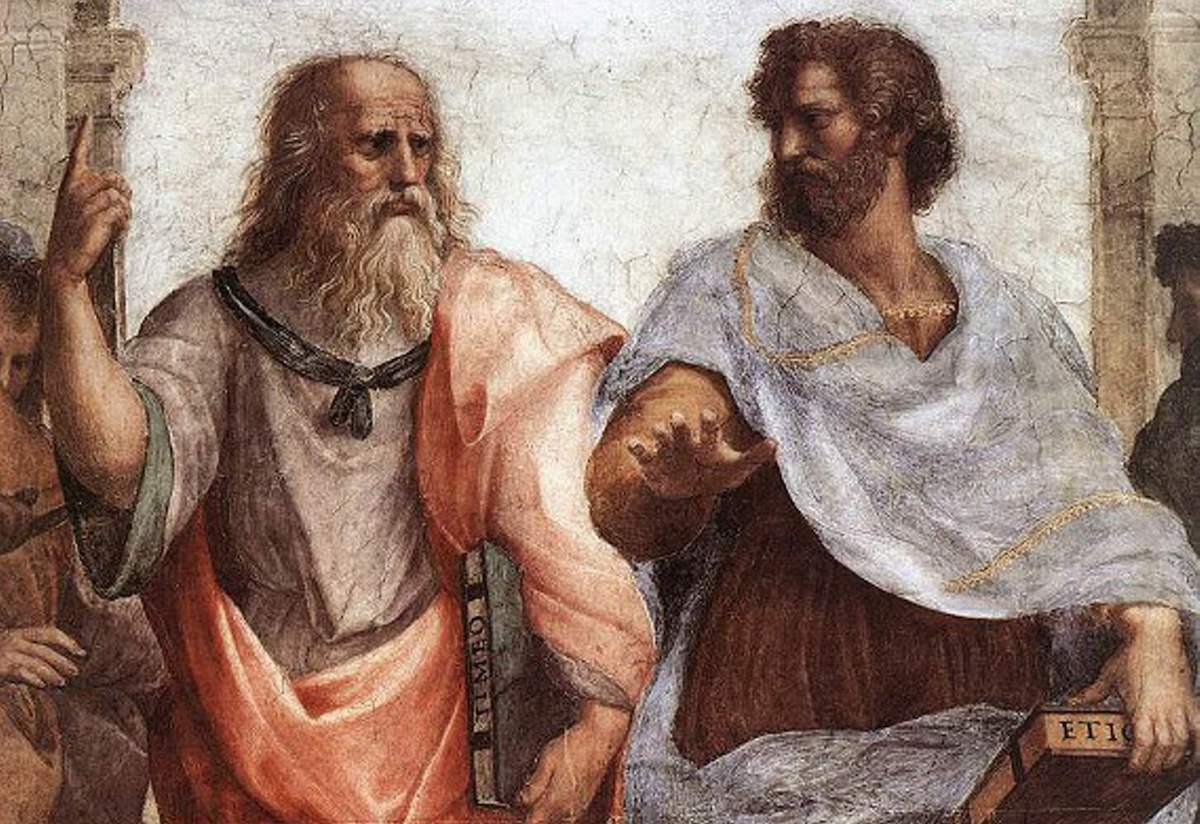
II. Platonic Liberalism
Liberalism has not failed. If anything has failed, it has been the anthropology with which early-modern thinkers tried to underwrite liberal values. In the 20th century, Marxist societies were also founded on that anthropology, and they failed miserably. If liberalism is to survive, by contrast, it must be given another foundation—another anthropology, to begin with, but other philosophical premises too. In my “Premodernism of the Future” essay, as well as the previous section of this essay (“Premodern Liberalism”), I have begun to argue how Platonism supplies this foundation. In brief, it can save the juridical and political benefits that modern liberalism has given the individual, without ever adopting the “ideological dimensions” that made it susceptible to critics from Deneen to the postmodernists. In this section, then, I would like to elaborate this argument in response to some of Deneen’s other complaints.
Before turning to them, let’s summarize the basics of the Platonic approach to liberalism and how it meets the objections already leveled by Deneen against it. Before this summary, furthermore, a proviso is in order: what follows are Platonic doctrines, not Platonic arguments. The doctrines are only as valuable as the arguments are sound. To investigate the arguments, however, one must study Platonic texts critically, and that is the task of a lifetime, not an essay. This essay, then, is merely an advertisement for that task, hinting at its importance for our times.
First of all, most generally, Platonism underwrites liberalism by its account of the world: everything short of the Good is an image of it, from inanimate to human beings. We humans, as reasoners, have minds whose purpose is the contemplation of the Good. The summit of this contemplation is union with the Good; short of that consummation, however, we find our satisfaction not only in seeking, but also in imitation of It. As humans, in other words, we have twin duties according to our twin purposes: to seek the truth of the Original and to steward Its images. Heeding the first purpose, the exercise of our will is not arbitrary, as in voluntarism, for it has an inherent goal: the Good. Heeding the second purpose, we are not alienated from nature, as in the Baconian project, for everything under heaven, from plants to our own bodies, is an image of the Good, which we must respect as such.
What about freedom? Our innate freedom, while not perfect, is nonetheless an image of the world-making freedom of the Good. It is sufficient, when untrammeled by oppressive government, for the pursuit of truth and the stewardship of the earth. Liberalism is the best regime for us because it grants us, as individuals, the external freedom we need in order to realize this innate liberty. Think only of the pursuit of truth, and how it warrants the three most basic rights of the First Amendment. We must be free to speak and to publish our ideas, because this is a minimal condition of the pursuit of truth. We must be free to worship the Good as we have come to understand It (God), for this engagement of our whole selves — with our appetites and passions engaged by stories, sounds, tastes, and smells — is the only way to re-orient them fully. Finally, we must be free to associate with one another, if only because the truth is best pursued in community. There are many reasons why this so, but consider at the moment merely how differences of viewpoint and opinion keep the pursuit of truth from becoming ideologically blind.
Such justifications — supplemented by appeals to our duty of stewardship — can be given for all the fundamental juridical and political rights granted to the individual by liberalism. That, at least, is the proposition of Platonic liberalism. Nowhere in this variety of the political philosophy, therefore, is there any need for a social contract, so the postmodern critiques of that fantasy never gain purchase. Nor does the critique that liberalism requires a spurious “tacit consent” from those who were never party to the original contract. Everyone who stays in a country past a certain age, goes the early-modern version of this argument, has tacitly consented to its original contract. Hume compared this to the consent of someone who has been forced by pirates to walk the plank. “You are free to jump into the open sea,” say the pirates, “so if you walk back to this ship you have tacitly consented to its piratical customs.” Deneen alludes to Hume’s criticism, and is right to do so.
With Platonic liberalism, by contrast, all of these doomed stratagems can be avoided. No consent whatsoever is needed. The rights and freedoms of liberalism flow not from any contract, real or imagined, but from the fact that they are our birthright as reasoners. Our government must grant us the freedom to use our reason, individually, to pursue the truth and to steward the earth. No further justification is needed. But this emphasis on the individual does not neglect, let alone destroy, those mediating institutions whose importance Deneen and Tocqueville acknowledge for the cultivation of virtue and self-mastery. A liberal government, Platonically justified, must respect, and in some cases even establish, the mediating institutions that train us to pursue the truth and steward the earth. Neither skill comes naturally, after all, to untutored children. On the contrary, they need families, synagogues, and voluntary associations of all kinds, not to mention compulsory public schools, to bring to perfection the activity of their free reason.
Here is where the sharpest point of Deneen’s critique of liberalism can be blunted. Only a character that has been rigorously trained can pursue the truth with any effectiveness, not to mention steward the earth responsibly, so the government must promote self-mastery as well as self-expression. Yet the two will come into conflict from time to time, and sometimes when they do there will be no easy resolution. As with many such conflicts of our times, such as Obergefell, one account of the Good (a religion) will demand favor for self-mastery (say a specific rule for sexuality and marriage), while others who do not accept this account of the Good (other religions) or who do not believe there is any such thing as the Good (atheists and agnostics), will seek instead self-expression (more license for sexual pleasure and greater diversity in marital contracts). The always difficult, never finished work of liberal government will be to adjudicate this kind of conflict.

Although Platonic liberalism will be committed to the existence and supremacy of the Good (Nature’s God, if you will), it can never lay claim to any particular account of It, recognizing, as Plato does, the limits of human beings in their pursuit of this understanding. Thus, although one might assume such a government would favor the advocates of self-mastery over those of self-expression, this would be a mistake. Whenever the advocates of self-mastery make their arguments in the certain terms of specific accounts (religious dogma), they have failed to abide by the rules of this best of all regimes, which allows imperfect humans to seek the truth, often together, sometimes in inevitable conflict with one another. However certain dogmatists may be within the walls of their sanctuaries, whenever they step outside, they must appeal to natural reason if they are to persuade anyone else. This compromise — if it be considered that, rather than invitation to deeper understanding — is the price to be paid for peace. After the religious wars of the 17th century, we learned it was worth paying.
How do we get to Platonic liberalism from here? Like Deneen, I believe that the renaissance is most likely to come from a renewed appreciation of the liberal arts, a renewed contact with the best of our intellectual tradition, especially ancient literature, and Greek philosophy in particular. Postmodernism seems to have crested. Even if it has not yet begun its retreat from the humanities, wise and persuasive critics are attacking it everywhere else. Its ultimate defeat will take time, just as it took time for the philosophical pathologies of modern philosophy to reach the practices and discourse of everyday citizens. Let’s play the long game. And let’s do so with some hope. The U.S. Constitution makes no commitments to voluntarism, alienation from nature, or any of the other philosophical errors that have infected modern thought. On the contrary, it is largely neutral about philosophical questions. What it does instead is show us how to organize a government that will allow us to exercise political freedom without compromising our juridical rights. These are the very things Deneen thinks worth preserving from the liberal tradition.
Yes, the Constitution has been abused by administrations both Left and Right in recent years. President Obama bypassed the legislative branch with his abuse of executive orders, and President Trump receives emoluments from foreign governments through his businesses, even if he did not also obstruct justice when he fired James Comey. But compare these abuses with those of 1964–1973 and you’ll find the Constitution more durable than present commentators fear: President Johnson went to war in Vietnam without the approval of Congress, and President Nixon tried to undermine the electoral process with the Watergate burglary. Nor have the abuses of the Constitution been limited to our imperial presidents. Congress has recently encroached on the executive branch by undermining treaty negotiations with Iran, while the Supreme Court has encroached on Congress by confusing interpretation with legislation (e.g., Roe v. Wade). Yet here we are. For all its abuse, and as embarrassed as we may be of our current administration, our Constitution is still a model of a just liberal order.
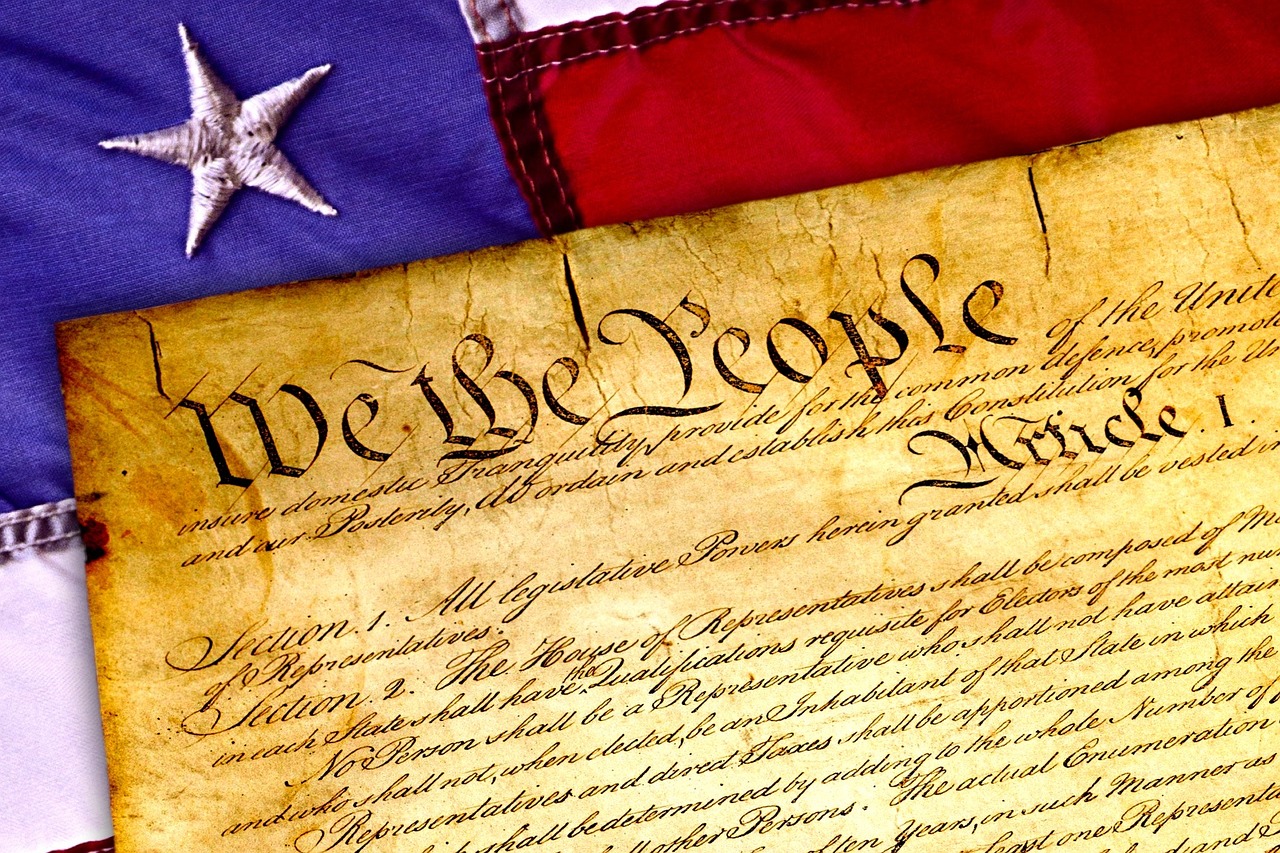
III. American Platonism
In conclusion, it is worth mentioning Deneen’s criticisms of the Federalists: Hamilton and Madison. For if the way out of liberalism’s crisis must follow the Constitution, while awaiting a renaissance in culture that will give its principles their proper foundation, it better be the case that the Constitution itself is not infected, as Deneen argues it is, with the failures of early-modern liberalism.
First of all, Deneen observes, the Federalists were anti-democratic. Like most of the other participants in the Constitutional Convention, they had been trained in the Greek and Roman classics. They knew both Plato’s penetrating critique of unchecked democracy in Republic, and the history of Athens that had confirmed it: its ostracism of its best patriots (Aristides, Themistocles, and Cimon), its fickleness whenever a clever speaker got their attention (Cleon or Alcibiades), the debacle of the Sicilian Expedition and the unjust trial of Socrates. Indeed, the Framers of the U.S. Constitution knew the dangers of Athenian democracy at least as well as Shays’s Rebellion, which had only months earlier reminded them of the risks of mob-rule on American soil. To avoid these risks and dangers, they made sure to the filter the will of the people through several constitutional sieves: Representatives, Senators appointed by state legislatures, a President who would be elected not directly but by an electoral college, and finally Supreme Court justices whose appointments would be for life.
Were the Framers’ fears of mob-rule irrational? Or were those fears rational then, but inappropriate now? If so, have the dangers of mob-rule passed? Are the American people really wiser now than they were after the Revolution? If so, by what measure? Deneen admits that American democracy is broken, referring in one particularly caustic passage to “the deformed and truncated demotic actions of a degraded citizenry.” But unlike the Federalists, he does not leverage such judgment as a critique of democracy itself. Instead, he accepts the essentially Rousseauian argument that life in a corrupt society (liberalism) has made Americans that way. So when exactly did the corruption of the otherwise non-demotic people occur? Were the people ever non-demotic? Even if sense can be made of that oxymoronic question, the Framers of the Constitution were no more confident in popular sovereignty than we should be nowadays, for they drew their wisdom from the deep wells of antiquity before public survey data could confirm their dim judgment.
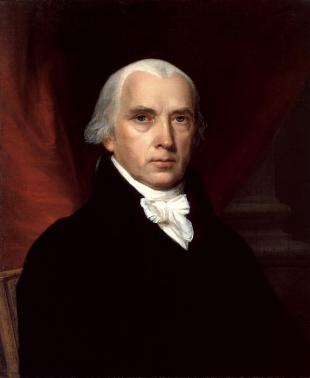
Secondly, Deneen argues that the Constitution was designed to empower government to destroy mediating institutions and thereby undermine self-mastery. In Federalist 10, Madison claims that the primary goal of government is to protect “diversity in the faculties of men,” especially in their attainment of private property. He recognizes that the nascent Republic will contain competing economic interests: farmers, manufacturers, merchants, and others will each try to incline the government in their own favor. With more such interests, though, the chance of any one dominating the others will diminish. This principle applies not only to economic interests, but also to interests of other types. “A religious sect,” writes Madison, “may degenerate into a political faction in a part of the Confederacy,” but the wide expanse of the Union ensures that it will be challenged by other factions from elsewhere. Madison is arguing for the advantage of a large Republic over the small ones (such as Athens) where such factions proved lethal.
From this argument, however, Deneen draws the following invalid conclusion: “The government itself is to be given substantial new powers to act directly on individuals in order at once to liberate them from the constraints of their particular localities.” According to Deneen, in fact, these new powers will extend to our intimate lives, because Madison’s arch-liberal goal is “liberation from interpersonal ties and connections, fostering mistrust toward others, so that interpersonal relationships would be tenuous, fleeting, and fungible.” The only thing tenuous here is Deneen’s conclusion, which is based on a misreading of Federalist 10. Madison expected federal representatives to rise above local attachments when they traveled to the capital, adopting the national perspective that befitted their new role. But there is no evidence that he expected the citizenry to do the same in their daily lives.
On the contrary, as Gordon Wood has summarized in a recent response to Deneen’s book, the Federalists feared the erosion of mediating institutions, imagining “this awful kind of world, where the individual is alone and without any kind of connections with anyone.” This did not stop the anti-Federalists, any more than Deneen, from worrying that the new Constitution would empower the central government to annihilate state and local governments. Against these critiques, the Federalists protested that state and local governments would remain strong (e.g., 17, 39, 46, 84), and the subsequent history of the Republic showed them to be right. To this day, after all, the average American citizen is more affected by the decisions of her state and local governments than she is by those in Washington, even if the eyes of a histrionic media are always upon the minutiae of the federal melodrama.
Deneen is nonetheless right that the Federalists argued for a stronger central government than had been afforded by the Articles of Confederation. Indeed, this was their defining issue. Had their arguments not already been sufficient to prove them right on this score, subsequent history would have supplemented their prudence. The new Republic had heavy obligations, both financial and military, and only a federal government that taxed individual citizens directly could meet them. Focusing only on the military challenges for the moment, let us recall that the U.S.A. was surrounded on all sides by global superpowers (Britain to the North, France to the West, Spain to the South, and all three patrolling the Atlantic to the East). To preserve its territorial integrity, never mind expand westward, it would need to field more than the band of militias that had sufficed to win what amounted to little more than a long guerilla war of patience. As in the present context, when Deneen never mentions China, Russia, or Iran, so too in the 18th century context he neglects international politics.
Hamilton was too seasoned a warrior, and too savvy a statesman, to make that mistake. In one of the only other Federalist Papers Deneen adduces by number (34), he discusses the revenues to be gathered by state and federal governments. His first object is to establish the co-ordinate sovereignties of these two levels of government, against the persistent anti-Federalist objection that the federal level proposed by the Constitution would annihilate the state level. Satisfied that he has established the endurance of state government, he then turns to the taxes to be levied by each. Whereas some had proposed that the states should always receive two-thirds of the tax-revenue, leaving the federal government only one-third, Hamilton objects that the proportions should not be fixed, but instead remain indefinite. Only so, he argues, will the nation remain free to adapt to unforeseen circumstances — especially foreign war. “Where can we stop,” writes Hamilton, “short of an indefinite power of providing for emergencies as they arise?”
This is Deneen’s proof-text of Federalist ambition, seeing in it the confession of a metastasizing federal government capable of effacing all mediating institutions. But as with the quotations from Federalist 10, when this passage is returned to its proper context the menace dissipates. Hamilton is wisely recognizing that no Framer can foresee the needs of the future (e.g., a Department of Energy, supervising our nuclear arsenal?). And the subsequent history of the country has vindicated his judgment. Only when the federal government could tax the wealthiest at 94 percent, for example, could it generate the revenue it needed to defeat German and Japanese fascism in 1944. Yet even then the state governments, like the wealthy, survived — which they would not have done had Hamilton’s anti-Federalist opponents tied the federal government’s hands with fixed limits upon its revenues.
So, yes, as Deneen observes, the central government conceived by the Federalists acquired great powers; and certainly, since the country has grown accustomed to fighting long wars with vague goals (1941–1991; 2001–2018), it has abused them. But this is still the country, lest we forget, where such critiques can be made. And it is still the country where the Amish ride their buggies unmolested. Besides keeping us secure from foreign rivals, then, it has also done a passable job at preserving our liberties, both for self-expression and self-mastery. So let’s trust in its Constitution a little longer. We’ve been through more serious crises (1790–1800, 1861–65, 1968–1973) and have good reason to believe our system will weather this one. My counsel of patience, however, is not an excuse for passivity. We are waiting not for deliverance from some mysterious curse, but for the cultural renaissance Deneen and many others are already working to effect. Let’s join them, post-haste, restoring confidence in the established practices of our liberal regime, encouraged more than ever by its new theoretical foundation: the ancient philosophy of Plato.






